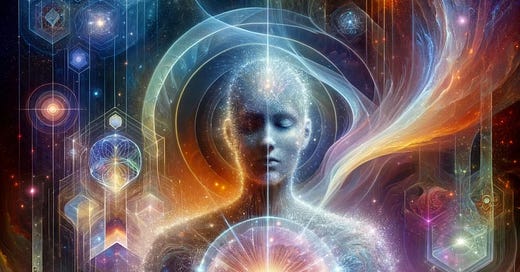The Five Skills of Conscious Leaders
Last year in the car on the way to parkour class, Andre and I got into a fun debate about the top 5 skills we would each bring to the table in the event of a zombie apocalypse. He rattled off a list of his abilities (like being a good leader and using his parkour skills) and then asked me, with some skepticism, what my skills would be. I said that I could drive any kind of car, build a fire, shoot a gun, hunt game, navigate in nature, read a map, and use strategic intuition. In the end, he agreed that I (and his mom and her skills) was qualified to be on his team. 😆
I am more convinced than ever that we are in the Age of Consciousness - which to power structures, probably looks a lot like a zombie apocalypse!
I think there are many positive signs of increased consciousness - from a generation taught to be more inclusive, to technology (including AI) that allows people to become entrepreneurs or social movement leaders.
It may not look positive at first glance.
Most of what is called “news” is about the growing pains of evolution; which is often the death rattle of dying institutions. The proliferation of content production, clickbait, and grift funnels (my term for most politicians and corporate church leaders) has made it nearly impossible to discern between information and misinformation. Whether it’s products, beliefs, or ideas, current tools are limited at providing a clear separation between facts and bullshit.
As I’ve written in my most recent Massive articles, when you raise your consciousness it changes how you see yourself, other people, and the world. It also changes your language to a more soul-based form of deliberation, directness, and kindness.
In every era of transformation, humans need to upgrade their skills. While changing perspectives and language is a positive natural occurrence of raised consciousness, they are not really skills.
“Awareness is the greatest agent for change.”
― Eckhart Tolle
So what are the skills necessary for successfully navigating the wild frontier of this new age?
Critical Thinking
Critical thinking has traditionally been defined as the process of actively and skillfully analyzing, synthesizing, and evaluating information to reach reasoned conclusions or make informed decisions. This typically means critiquing the input of information. While this is useful, consciousness shows you that you have to go beyond that. I love the way Virginia explains consciousness-based critical thinking - where you develop the skill of questioning your own mind. This includes curiosity about biases, projections, associations, reactions, feelings, thoughts, and so much more.
Consciousness reveals that much of what we think we think was instilled in us via social conditioning - and heavily influenced by our relationship with power (more on that below). This advanced level of critical thinking is more in line with what F. Scott Fitzgerald said: “The test of a first-rate intelligence is the ability to hold two opposed ideas in mind at the same time and still retain the ability to function”.




